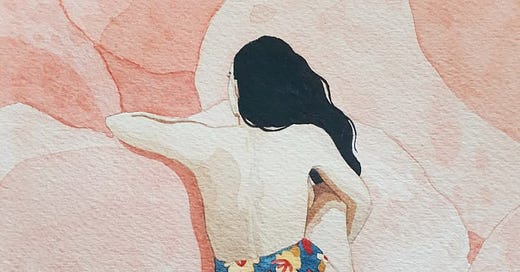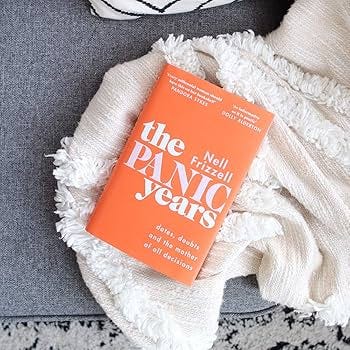Some books change your life. Nell Frizell’’s novel,“The Panic Years”, definitely changed mine. I felt so many of my own feelings and questions validated through reading her words. I highly recommend this book for women trying to make a decision on motherhood, or coming to terms with not having children.
She explores her decision making process, her conversations with her partner and her friends, as well as many societal, economical and ecological concerns shared by women of child bearing age.
Nell eventually gives birth to a baby boy.
I found her writing to be very honest, transparent and generous. Whatever your stance is on the topic of motherhood, this book will be therapeutical.
“You will never know if this was the right choice because, and this is almost impossible to bear, there is not right choice. There is just the choice you made and, on the other side, the absolute unknown.”
“There is no such thing as a purely rational decision. All decisions are informed by the totality of human experience. In order to make the “right” decision you must navigate a path through them all: head and heart, gut and garter”.
“If I were to become a mother, then I wanted to do it within a relationship. I had seen how hard being a single parent was, and as a result, I wanted to do it with a partner by my side. If I had to put on hold the one thing I wanted from life, because a man wasn’t absolutely sure that the circumstances were absolutely right, then that was what I had to do. It was simple, what he wanted was in conflict with what I wanted. And if he didn't feel ready, than my own readiness was immaterial.”
“Inside each of us, there is a struggle going on between the hedonist and the homemaker, all the time. We simultaneously want to let rip, take care, be in the world, stay home, run free, nurture, wreak havoc, and create safety. At various times, one or other of these urges will take precedence.”
“It is on this bedrock of inequality that so much of the Panic Years take root. Fertility, freedom, what control a woman can expect over her future, the balance of power within the relationships, who faces the greater sacrifice in parenthood, whose career takes precedence, what level of physical discomfort you should be expected to accept, and who, ultimately, gets to make the big decisions.”
“We need a different narrative: that sometimes people who want babies don’t end up having them. Whether that’s because of time, hormones, physiology, illness, or the myriad other factors that can influence fertility is often unknowable. But we can, as a culture, recognize that the child-free life, whether chosen or not, is as valid, as nuanced, and as worthy of our attention as the parenting one.”





